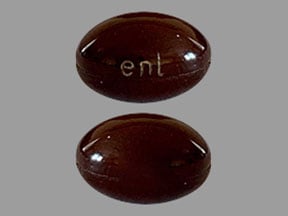
Enlyte Coupons & Savings Card – Discount Prices from $150.70
My prescription
Edit
1, Enlyte (30 Capsules)
Select pharmacy

CVS
$174.90
COUPON PRICE
Walmart
$150.70
COUPON PRICE
Walgreens
$152.42
COUPON PRICE
Albertsons
$161.35
COUPON PRICEEnlyte savings card
Show this card to your pharmacist
Walmart
$150.70
BIN
ID
PCN
GRP
019876
LH5B2CFF3B
CHIPPO
LHX
Powered by
Related multivitamin and mineral supplements prescriptions
Related multivitamin and mineral supplements prescriptions
Price history for Enlyte
30 Capsules, 1nan
Average retail price for Enlyte
Average SaveHealth price for Enlyte
Our price history data is based on aggregated prescription data collected from participating pharmacies in America. Our prescription data updates daily to reflect the latest price changes. If you notice a missing data point, it means there wasn't sufficient data available to generate a monetary value for that date.
*Retail prices are based on pharmacy claims data, and may not be accurate when we don't have enough claims.
Enlyte dosage forms
Dosage Quantity Price from Per unit 1nan 30 Capsules $150.70 $5.02
| Dosage | Quantity | Price from | Per unit |
|---|---|---|---|
| 1nan | 30 Capsules | $150.70 | $5.02 |
What is EnLyte used for?
EnLyte is a prescription medical food used to manage nutritional needs in patients with depression and other mood disorders. It is designed to provide specific nutrients that may be deficient in individuals with these conditions, supporting overall mental health and well-being.
What is an alternative to EnLyte?
An alternative to EnLyte, which is a prescription medical food used to manage nutritional needs in patients with depression, could be other prescription medical foods or supplements that provide similar nutrients. Options may include Deplin, which contains L-methylfolate, or other B-vitamin complex supplements. It is important for the individual to consult with a healthcare provider to determine the most appropriate alternative based on their specific health needs and conditions.
Is EnLyte FDA approved?
EnLyte is a medical food, and as such, it is not subject to FDA approval in the same way that drugs are. Medical foods are regulated by the FDA, but they do not require premarket approval. EnLyte is intended for the dietary management of individuals with distinct nutritional needs under medical supervision.
Is EnLyte prescription only?
Yes, EnLyte is a prescription-only medication. It is typically prescribed by healthcare providers for specific medical conditions.
What are the side effects of EnLyte?
EnLyte is a prescription medical food used to manage nutritional needs in patients with certain conditions. Common side effects may include gastrointestinal discomfort, such as nausea or upset stomach. Some individuals might experience allergic reactions, though these are rare. It's important for patients to discuss any side effects with their healthcare provider, especially if they are severe or persistent.
